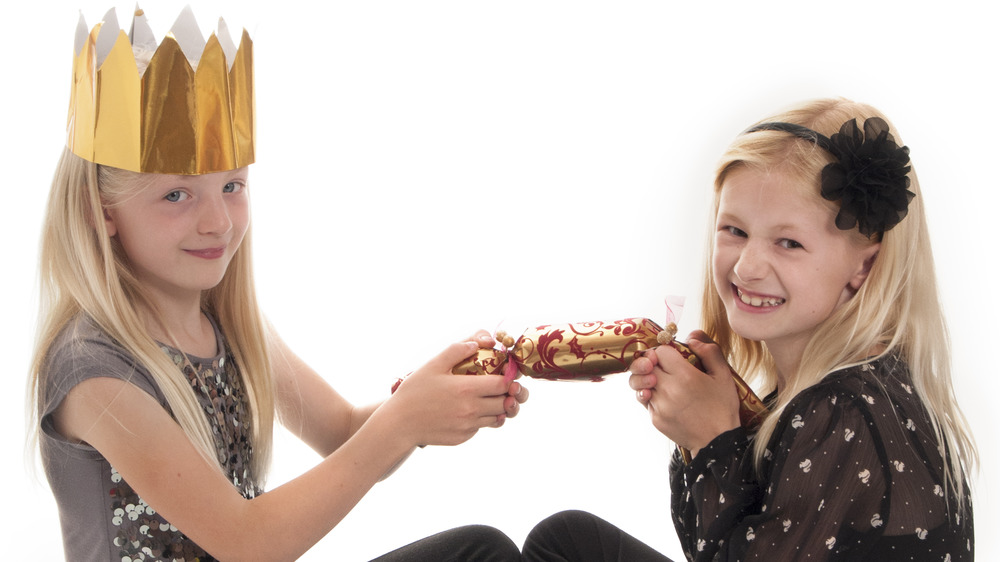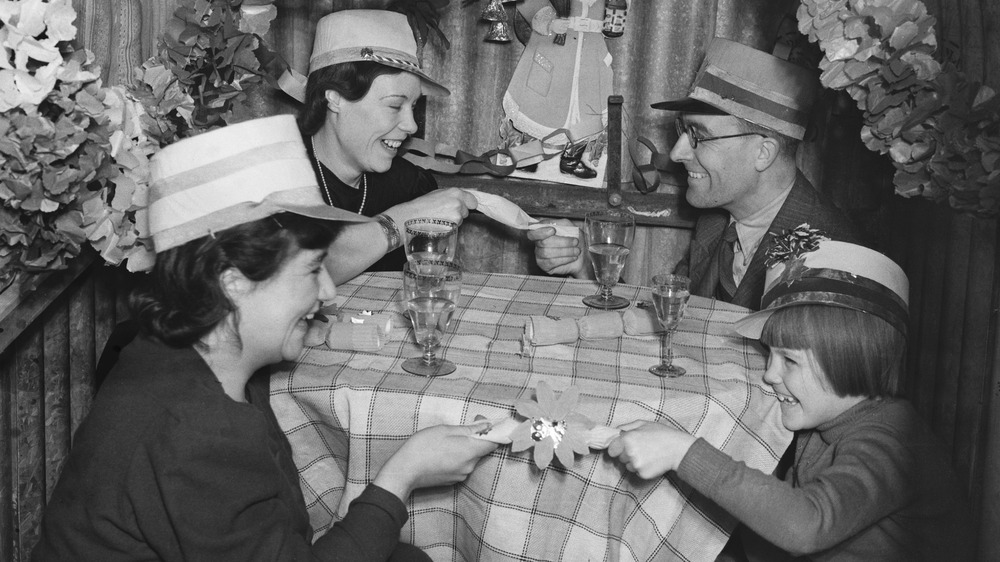The True Origin Of Christmas Crackers
Many British people celebrate Christmas by exchanging presents, hanging stockings, and enjoying a delicious midday feast. Additionally, across the pond, it is common for adults and kids of all ages to celebrate all the festivities while donning bright paper crowns.
The colorful tissue paper hats are found inside the Christmas Cracker, a festive cardboard tube that, when pulled, emits a bang and dispenses the hats, along with a small gift and a slip of paper containing a joke or funny motto. Christmas Crackers are a delightful part of the holiday tradition in Britain, and it's rumored that even the queen herself forgoes her real bejeweled crown in favor of a festive paper version on Christmas Day, per Historic UK. How did this tradition start?
According to most sources, credit for inventing the Christmas Cracker goes to Tom Smith, a London-based confectioner. In 1847, he wanted to do something to set his sugared almond bonbons apart from their competitors, so he began including love poems inside the paper wrapper. At first, bonbons were commonly given to women by their suitors, so the romantic verses were a selling point. But Smith was soon inspired to expand his market.
Smith was inspired by a crackling fire
According to History Extra, Smith was watching a cozy fire spark and crackle in the fireplace when he was inspired by the loud crack made by one of the logs. Adding a surprise bang to his products, he mused, was sure to catch people's attention. He set to work fashioning larger, log-shaped packages that would issue a loud crack when opened. Soon, he replaced the bonbon with a toy, and the love poem with a joke. His son, Walter, added the paper hat, and the modern Christmas Cracker was born. Initially, the crackers were called "Cosaques," after the sound made by the horsewhips of Russian Cossacks.
Nevertheless, Smith might not be entitled to all of the credit. Another London sweet maker, an Italian man named Sparagnapane, established his company one year earlier than Smith's, and claims to have been "the oldest makers of Christmas crackers in the United Kingdom." But regardless of who gets bragging rights for the original invention, they soon became a timeless part of Christmas festivities in Britain and elsewhere.

